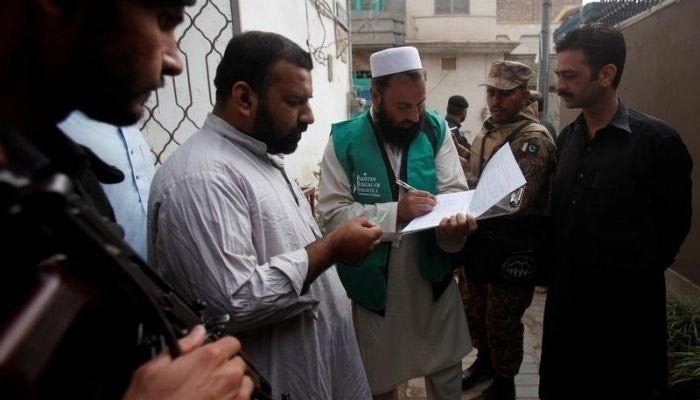
Pakistan's first-ever digitised population census will be completed in 30 days in August 2022. — Reuters
The Pakistan Bureau of Statistics (PBS) kicked off fieldwork for the 7th Agricultural Census on Thursday, marking a significant shift in data collection by utilising digital tools.
The census, which will run from January 1 to February 10, 2025, aims to gather vital agricultural insights for sustainable farming and food security.
PBS prepares for 7th Agricultural Census
This decade-overdue activity involves 7,686 trained enumerators and supervisors nationwide. The PBS is conducting the census, ensuring real-time monitoring and accuracy in documenting land, livestock, and machinery through the use of tablets and GIS technology.
However, the census outputs are expected to be analysed in August 2025, which will support evidence-based policies to boost productivity and enhance farmers' welfare.
During the launch event held in Islamabad, Federal Minister for Planning Development Ahsan Iqbal emphasised the critical role of agriculture in Pakistan’s economy, contributing significantly to GDP, exports, and employment.
The data will guide management, its cropping pattern, and its food security strategies to align Pakistan's agriculture with global standards.
Importance of Agricultural Census
The census was further emphasised for regional importance in the provinces. In Lahore, Punjab finance minister Mujtaba Shujaur Rehman has also underlined that the province is contributing 224% to the GDP of Pakistan and has 29.4 million acres of land cultivated.
Notably, Karachi Sindh’s minister highlighted the contribution of the province to the cultivation of cotton, rice, and sugarcane. Whereas, Khyber Pakhtunkhwa's agriculture minister, Sajjad Barakwal, noted how heavily the region relies on agriculture, accounting for 22% of the province's GDP.
In Bajaur and Azad Jammu and Kashmir (AJK), officials stressed the need for precise data to improve planning and support the agricultural community.
With digital innovation at its core, the 7th Agricultural Census is a transformative step towards ensuring sustainable growth, empowering farmers, and addressing food insecurity in Pakistan.
















